-
Silicon Valley (HBO)
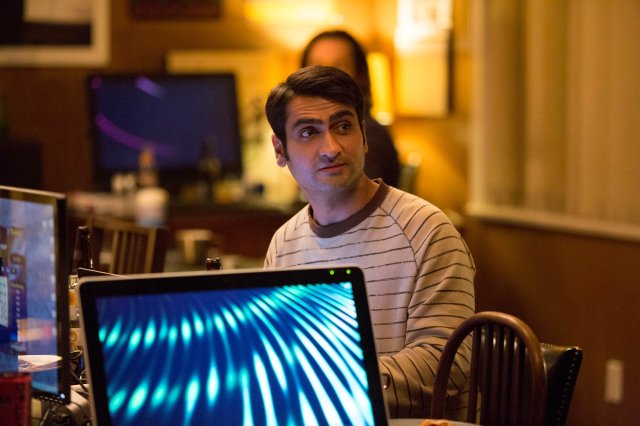
HBO Why are there so many satires of politics and showbiz when the true center of influence and power in our society is on your smartphone? Mike Judge’s sitcom takes a loaded can of spray paint to software culture–the hungry dreamers, the coddled zillionaires–but also appreciates the adrenaline charge of creating something new. It helps that Thomas Middleditch makes central geek Richard a beta-mogul with a conscience, and he’s surrounded with one of TV’s finest comedy casts. (Including, sadly the late Christopher Evan Welch.) All this, plus a finale involving very likely the most elaborate and mathematically sophisticated dick joke in history, made this one of 2014’s finest startups.
-
High Maintenance (Vimeo)

Vimeo This online anthology is a comedy about pot–specifically, a dealer known as The Guy (Ben Sinclair) and his clients–but it’s not a pot comedy. Instead, it’s a collection of scintillating character stories about why his customers want to buy, which is to say, why they seek escape. Written, directed and edited by Sinclair and wife Katja Blichfeld in artisanal batches–the series released only five episodes in 2014, but each was jewel-crafted–it’s a slice of neurotic Brooklyn life that’s worth deeply inhaling.
-
Louie (FX)
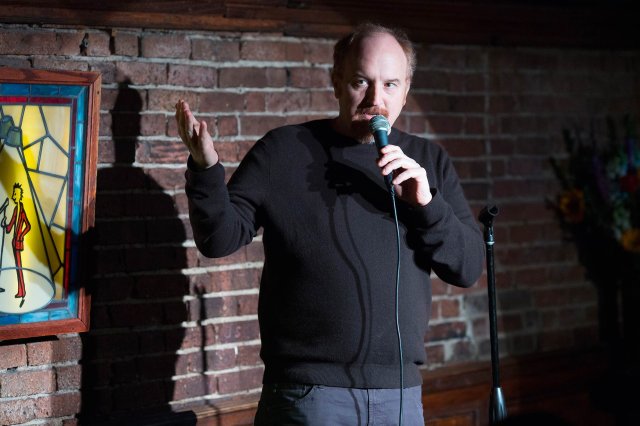
FX Past seasons of Louie have been hilarious, risk-taking, philosophical. Season four was… challenging. Sometimes it seemed to be fighting against itself: against the TV format (one “episode” was 90 minutes long, another a feature-length six-parter); against our identification with its protagonist (whose season-long search for love made him at turns vulnerable and ugly); even against intelligibility (one story involved two characters who literally did not speak each others’ language). But it was also moving, provocative and hard to shake, a haunting study from multiple angles of how the attempt to connect with another person is the banana peel on which we must all slip, stumble, and get up to try again.
-
Broad City (Comedy Central)

Comedy Central This stoner-slacker-striver buddy comedy, birthed from the viral videos of stars Ilana Glazer and Abbi Jacobson, didn’t so much debut on the TV scene as crash it, leaving weed ash stains on the rugs and hazy, hilarious memories in the morning. Starting from a simple premise–two underemployed friends in a Manhattan built from bricks of cash–it was addictively anarchic, powered by Glazer and Jacobson’s alchemic buzz and the belief that life can never get so bad that it can’t suddenly turn into a rap video.
-
Last Week Tonight with John Oliver (HBO)
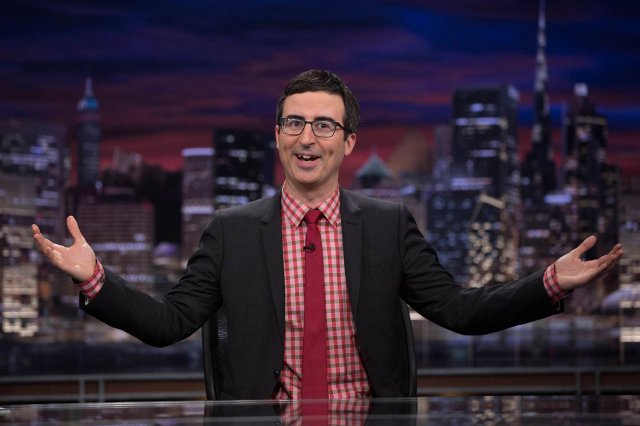
HBO Last Week Tonight could have been one fauxcast too far. There was already plenty of fake-news comedy on TV and online. And on a weekly schedule–as the title cheekily admitted–the news would be well digested by the British ex-Daily Show correspondent’s teatime. But Oliver turned that into a strength; instead of chasing the same news, he aimed his acid stare on news too wonky or worldly for the media’s attention. He used the commercial-free format for long, viral takes on topics from net neutrality to drone warfare, laced with genuine outrage and actual reporting. How do you revive the fake-news format? By making it real.
-
Fargo (FX)
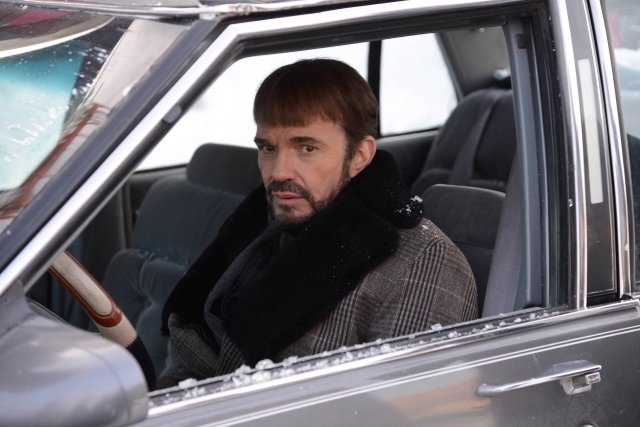
FX The highest compliment I can pay Noah Hawley’s miniseries is that it made me forget the Coen brothers’ movie. Not that it’s a competition; rather, this oddball drama took the raw elements of the 1996 film–murder, accents, snow–and became its own thing. Its scale was both intimate and Biblical, small town cops (Allison Tolman and Colin Hanks) chasing a nebbish (Martin Freeman) abetted by a Mephistophelian hitman (Billy Bob Thornton), in a glaring northern vista exposed to the eyes of God. In the end, it was less an answer to the movies than to other dark TV dramas: this was not one more dive into the mind of a fascinating antihero, but a story of how the decency of a community can overcome the devilry of a few.
-
Orange Is the New Black (Netflix)
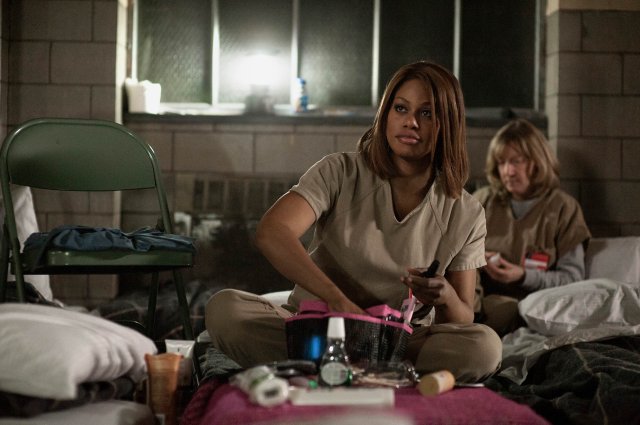
Netflix If the first season of Netflix’s lockup drama surprised viewers by finding the dark comedy in jail, the second mined its comic darkness. The season-long arc followed a power struggle within the alliances of Litchfield prison, introducing Lorraine Toussaint as a charismatic alpha inmate and forcing viewers to balance empathy for the cons with awareness of the bad things they’ve done–or that they still do. No longer reliant on jailhouse gentrifier Piper (Taylor Schilling) as the viewers’ guide to Litch, OITNB matured into a diverse ensemble drama of state-run dysfunction that can tickle you or punch you in the gut.
-
The Good Wife (CBS)
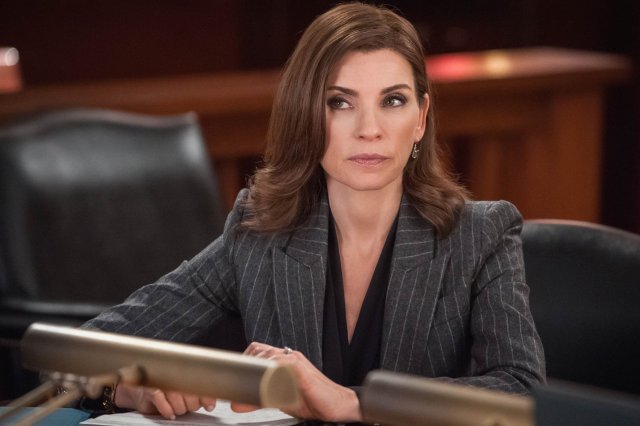
CBS If degree of difficulty were the only measure, The Good Wife would be TV’s best show hands down. It’s made under broadcast content restrictions; it churns out 22 episodes a year; and it’s in its sixth season, long after many dramas go on autopilot. But this drama keeps finding excitement late in life, shaking itself up (using the death of Will Gardner not just as a plot twist but ongoing source of emotional drive) and finding new paths (now, a run for state’s attorney by Julianna Margulies’ Alicia Florrick). Morally complex and a hoot to watch, the seasoned Good Wife keeps up with TV’s hot new things, backwards and in heels.
-
The Americans (FX)
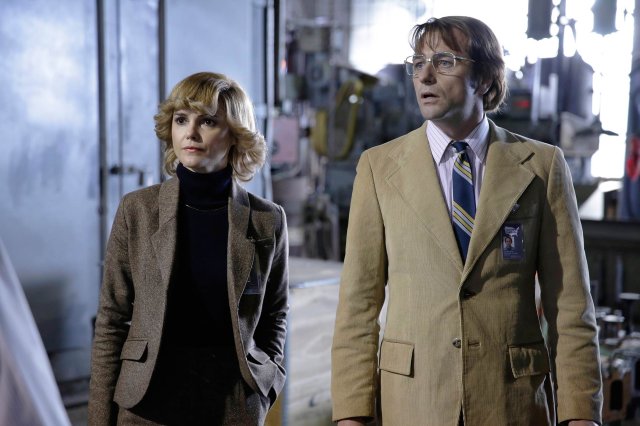
FX Someone must have cracked a code and stolen a top-secret propulsion system, because this ’80s drama about two Soviet spies paired as a suburban-D.C. couple was positively turbocharged. The already sexy and emotional drama gained greater emotional resonance as Philip and Elizabeth Jennings (Matthew Rhys and Keri Russell) found it harder to isolate their children from the repercussions and dangers of their work. The second season was thrilling and deftly plotted, a moody, elegantly crafted Shostakovitch fugue of a show.
-
Transparent (Amazon)
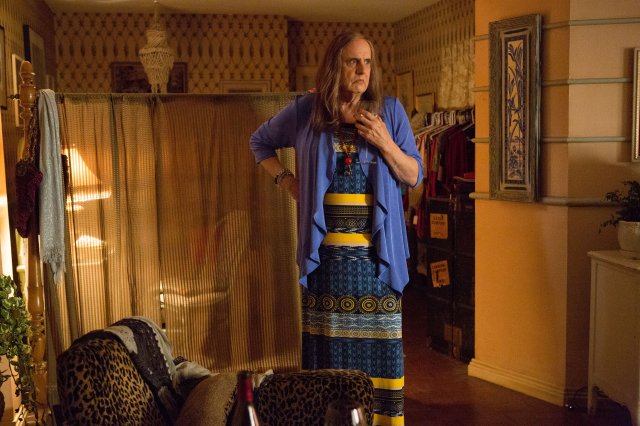
Amazon Studios Jeffrey Tambor gives the performance of the year as Maura Pfefferman, née Mort, a septuagenarian changing her identity from male to female and the “trans parent” of the title. (Don’t worry, it took me a while to get the pun too.) But this richly observed family story from Jill Soloway is about much more than one transition; Maura’s announcement richochets across the lives of her adult children, each facing their own identity crisis. Gorgeous, melancholy and funny, Transparent reveals layer upon rich layer like a noodle kugel at a fractious family dinner.